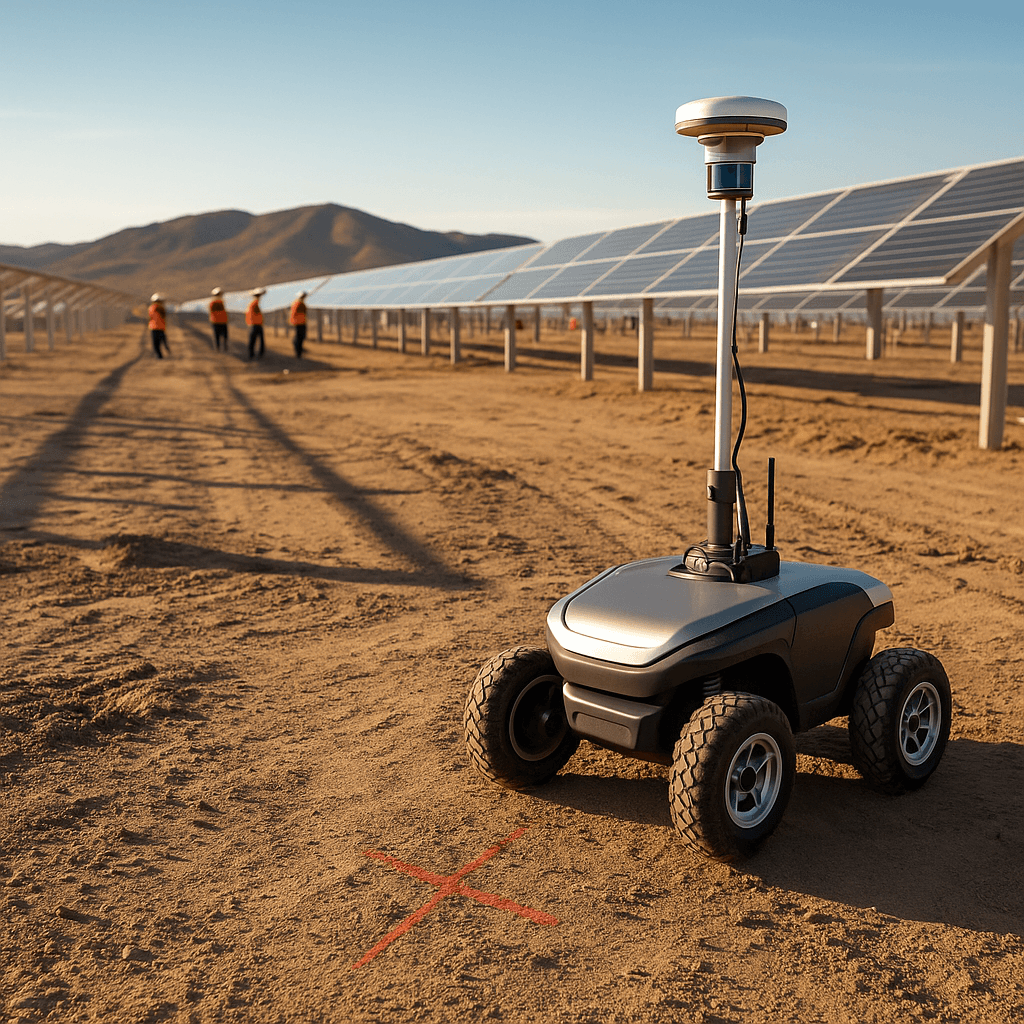Civ Robotics just deployed over 100 autonomous surveying robots that are transforming how solar farms get built. The California startup's CivDot machines can mark 3,000 placement points per day with millimeter precision, slashing construction timelines while major solar developers scramble to cut costs amid shifting government support.
Civ Robotics just proved that the future of solar construction runs on four wheels and artificial intelligence. The California startup's CivDot robots are quietly revolutionizing how renewable energy gets built, marking up to 3,000 layout points per day with surgical precision while human surveyors struggle to hit 350. In an industry racing against time and tightening margins, this 10x productivity leap couldn't come at a better moment. The breakthrough comes as private renewable projects push forward despite federal policy headwinds, creating massive demand for construction efficiency. "Our secret sauce and our core technology is actually in the navigation and the geospatial -- being able to literally mark coordinates within less than a quarter inch, which is very, very difficult in an uneven terrain, outdoor surfaces, and out in the desert," Civ Robotics CEO Tom Yeshurun told CNBC. That pinpoint accuracy represents years of AI development focused on outdoor navigation challenges that stumped previous robotics attempts. Bechtel Corporation, one of the world's largest engineering firms, has become an early evangelist after deploying CivDot across multiple solar projects. "These were usually pretty highly paid field engineers that we would send out there, and they might be able to do 250 or 350 pile marks a day. With the CivDot robot, we're able to do about 1250 a day," Bechtel VP Kelley Brown revealed in the CNBC interview. The math is staggering for an industry where labor represents up to 40% of project costs. What makes this automation breakthrough particularly compelling is the brutal terrain these machines navigate. Brown described successful deployments across "thick and muddy terrain in Texas and out in the deserts of Nevada," conditions that would challenge human crews and break conventional robotics solutions. The four-wheeled CivDot handles 8-millimeter accuracy across uneven surfaces while working through weather that would halt human operations. Behind the scenes, has assembled a $12.5 million war chest from investors including , Alleycorp, FF Venture Capital, Bobcat Company, Newfund Capital, and Converge. That backing reflects growing venture appetite for construction automation as the sector digitizes rapidly. The competitive landscape reveals why timing matters for . While other robotics companies focus on highway markings and sports field layouts, Yeshurun noted that "those rivals can't handle the terrains that the solar industry faces as it expands into new territories." This specialization advantage positions the startup perfectly as solar development pushes into increasingly challenging locations. The broader context makes this story even more significant. Private renewable energy projects continue expanding despite reduced government support, creating pressure for dramatic efficiency gains. Traditional surveying requires multiple crews with expensive handheld receivers, and as Yeshurun explained, "That alone is already equal to how much we lease our machines in the field, and all the labor savings is just another benefit." now operates over 100 robots in the field, primarily serving renewable energy companies but also expanding into oil and gas applications. The diversification strategy suggests management sees surveying automation as a massive addressable market beyond just solar construction.











